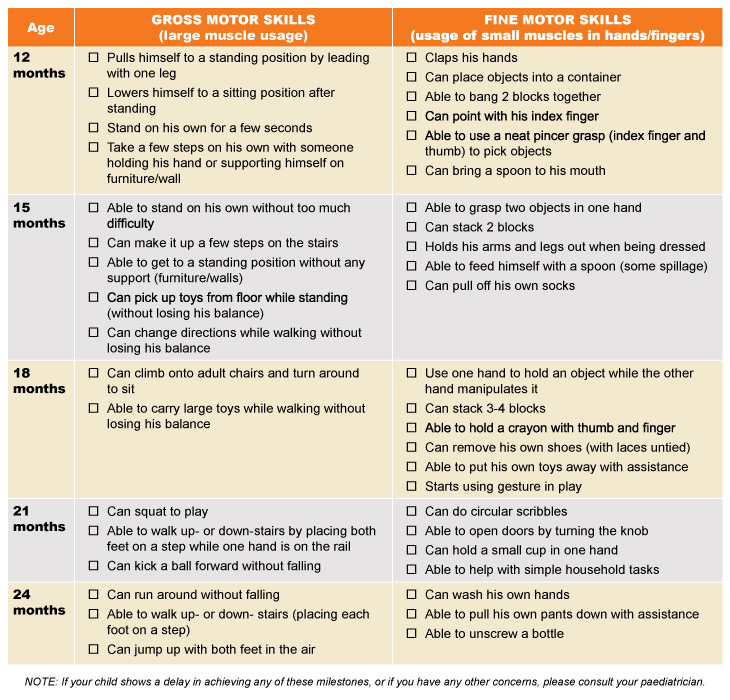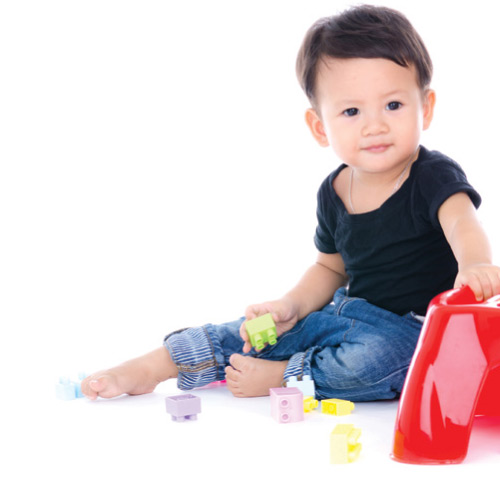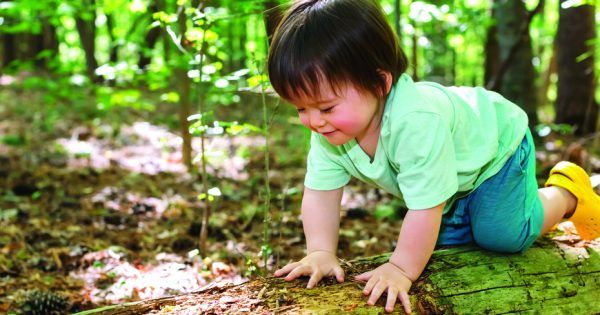Motor skills’ are actions that involve the use of your child’s muscles. They can be categorised as gross motor skills (large movements made with his arms, legs, feet, or entire body, e.g. crawling, running, and jumping) and fine motor skills (‘small’ actions which involve manipulation such as picking up objects with his finger and thumb.
From One to Two
As a guide, the developmental milestones for motor skills for the ages of one to two years are listed below. However, do bear in mind that your child is a unique individual and his motor skills may not match the milestones exactly.

Ideas to Try
Physical play is an essential component in the development of your child’s motor skills as it helps him to develop and master his body. In order to help your child to develop his motor skills, you can stimulate them by using play as a way to make him practise using his muscles, e.g. playing tag, stacking blocks, doing jigsaw puzzles, etc.
Don’t know how to start? Here are some tips to get you started:
Visit a playground: Your child can practice different physical skills such as climbing and going up- or downstairs. You can also play games with him such as Follow the Leader or just teach him how to play with swings.
Go outdoors: Bring him for a hike or a walk in the park. You can play by pretending to be different animals (e.g. hop like a rabbit, jump like a kangaroo), playing tag, or playing with a ball.
The obstacle course: Make your own obstacle course (can be either indoors or outdoors) to get him to run, jump, climb, crawl, etc. Inject some fun into it; you can play the part of a fire-breathing dragon that will ‘eat’ him if he stands, and he has to crawl from one part of his playroom to the next to escape. This can be fun for the whole family!
Ride a tricycle: This helps him to develop better movement, coordination, and sitting balance. You can join him by cycling on your own bicycle, or jog along as you keep each other company.
Get him involved in daily living skills and simple chores around the house. Allow him to feed himself and get him to join in simple food preparation. If he spills his food, show him how to wipe it up. Allow him to join you in your daily chores – this will not only improve his motor skills but through interaction, help with language skills as well.
Just remember that at the end of the day, spending time with your child will not only benefit his motor skills, it will also bring you closer as a family!
An educational contribution by Malaysian Paediatric Association.







Comments